Exeter is so much more than the south-west’s second legal centre, hears Eduardo Reyes at the Gazette’s latest roundtable. As well as offering an enviable lifestyle, the city boasts a fiercely competitive market which is a draw for junior lawyers seeking to make their mark
There is a point on the journey from London to Exeter St David’s when the Great Western intercity service stops in the middle of open countryside. ‘We are running to time,’ the guard reassures passengers. ‘We’re just waiting for our turn on the single track.’
There is an altered timetable in place. But the rail line, even when running to its usual route and time, is one example of the particular challenges that come with building a business or a practice in this part of the south-west. At 158 miles away, Exeter is nearer to the capital than Manchester (163 miles), but takes longer to reach.
The city’s fortunes are not, though, determined by logistics alone. This ancient city on the River Exe is home to a leading university and set in a part of the UK that has clear attractions. It looks not just up the line to London but also to Plymouth and Bristol. As the south-west’s second legal centre after Bristol, its legal community has a distinct character and its law firms draw clients from far afield. Entrepreneurs and business owners are a substantial element of the client base, and the south-west has both areas of economic need and substantial commercial and private wealth.
The legal profession in Exeter has plenty of ‘pull’, and there is even talk of that second track being reinstated. As in many cities, there are well-established firms that have outgrown premises in its traditional legal centre, Southernhay, though many remain, and there is a sense that the street is still the heart of this legal community.
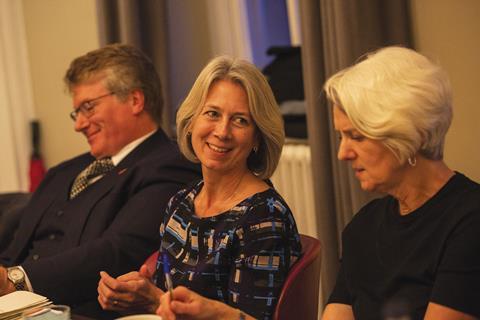
Devon and Somerset Law Society president, Nigel Lyons, is partner at a firm that acted on the attraction of Exeter. ‘Browne Jacobson’s a northern firm that’s come down south,’ he notes. A Newcastle University graduate, Lyons is a criminal and regulatory lawyer who moved to the south-west five years ago. As happens elsewhere, Lyons reflects, larger firms are dealing with the pressure to maintain turnover and scale, while smaller firms focus on cashflow. But if one is trying to measure the health and confidence of the local legal market, Lyons points to ‘how proud we are that the firms in the south-west are still taking on trainees’.
Helen Davies, a partner at 11-office firm WBW, says: ‘There’s plenty of work… Exeter feels like a vibrant and buzzy place.’ She does, though, draw a distinction between commercial and traditional high street work. For the latter, she adds, ‘it’s harder in Exeter because people are more expensive and the overheads are higher… So, although we have plenty of work, it’s harder to make it profitable here than perhaps some of the other offices, but we made a very deliberate decision that we wanted to be here and it was a place where we were keen to have a presence.’
Chris Hart, managing partner at Wollens, explains that his firm has grown through mergers that have taken it from £1.5m turnover to £10m in 12 years. Mergers make it difficult to compare business year by year, but, he says: ‘There is good work out there, and there’s plenty of work out there, but it’s a very competitive marketplace.’
Growth at a firm like Wollens is driven by the need to add strength and depth. Tim Selley, a partner at Crosse + Crosse, notes another reason to grow – for a firm of six partners or less, there is ‘the weight of regulation, and dealing with regulation, which is very time-consuming’. His firm is ‘robust’ in its approach to regulation, he adds, but it is a genuine challenge nonetheless: ‘I didn’t qualify as an administrator, I qualified as a solicitor, and sometimes it can be a struggle, but it’s the weight of time… That, I find dispiriting.’
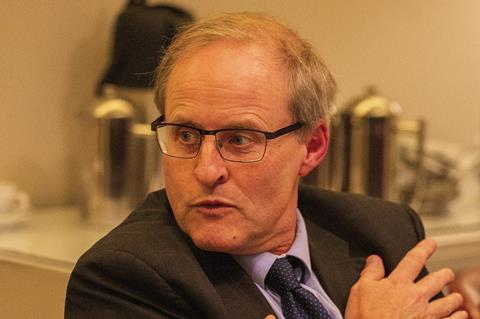
Finding ways to minimise the burden is behind Stephens & Scown’s review of its structures, commercial director Wendy Manfield says: ‘A lot of clients approach us [as] a distress purchase; my preference is very much that we focus on that client, give them great client service, and get their lives back on track as quickly as possible. So, we are looking as far as we possibly can to take a lot of that risk and compliance regulatory work off the legal advisers and centralise it,’ she says, prompting laughter, ‘to people who actually get a thrill from compliance’.
That is also about protecting more junior members of the firms, she adds: ‘The SRA seem to be going after quite junior members of staff, which I think is worrying and upsetting.’ Support services, such as business development, are a reason to grow in general, others add.
Exeter, it is observed, is not just a competitive market when it comes to instructions. The competition between firms to hire junior lawyers in busy practice areas can be fierce. It is ideal, Hart says, to commit to ‘the concept of growing your own lawyers… you want those people to stay, but increasingly, we’re also finding that the newly qualified… nought to three, five-year solicitor market is now very mobile’.
The traditional incentive to remain at a firm, the prospect of equity in the partnership, is weaker than in the past, several of those present note. Alisa Willows, managing partner at Wolferstans, says: ‘We’ve recently had a trainee, very good at their job – we wanted them to stay. We didn’t lose them to a competitor, they wanted to go travelling. So, they qualify, and then go off for 12 months, in complete confidence, of course, that they’ll pick up a job when they come back, because they will.’
Exeter and the surrounding area, though, has much to attract lawyers from further afield. Many ‘out-of-area’ trainees, Manfield notes, went to Exeter University, which has a leading law department. ‘Quality of life’ is a factor, she adds. And while junior lawyer ‘mobility’ is a headache for firm managers, Hannah Porter, an associate solicitor at the Family Law Company, notes that the level of opportunity in the area is also a draw. When she moved to the south-west for personal reasons, she was able to set up ‘multiple interviews’. Over the past three years, she says: ‘I’d say every other month I’ve had a recruiter contact me asking me to go elsewhere.’
‘There’s certainly quite a large recruitment market in Exeter for junior lawyers,’ Ben Butterworth, solicitor at Michelmores and another junior lawyer, observes. ‘I think those opportunities are there, which again goes back to that indication that there must be a work level sufficient to bring [them] in.’

Matthew Gingell, general counsel at Oxygen House, observes that the quality of life the region offers cannot be taken to mean short hours and acres of leisure time. ‘The profession of law, and the business of law, is so competitive now, that actually, to keep pace with the competing market, you have to be working harder, going to more events. I actually think it’s harder down here than it is in London,’ he says. ‘You’ve got to go out and find the work, you’ve got to do the work, you’ve got to build the work, you’ve got to chase the work, so it’s actually harder down here.’
He continues: ‘So, you can have work-life balance but with rubbish work, and I think that’s where Exeter gets it right because it’s got this triangle of really great work… it’s over-lawyered for its size, and we punch well above our weight into the national market. And because we do national work and have that quality of work… that’s really powerful.’
As a client, though, he has a challenge for the region’s private practice lawyers. He passes on the pressure the in-house team is under to provide ‘more for less’ to law firms he instructs. But there are areas where he would like law firms to respond better. ‘We try and say, “Don’t do work for us after 5.30, because we want you to have a life, and we won’t pay you for work you do after 5.30,” and then we find they’re doing work for other clients until 10 in the evening,’ he says.
He also relates attempts to get firms to use advances in legal technology. ‘We had a big acquisition earlier in the summer, and we asked our law firms to pitch for the work, but also [show how they would] use artificial intelligence to do the due diligence, and none of them could do it.’ Internally, he is trialling contract automation technology.
This prompts a discussion of ‘innovation’ in law. Willows says: ‘Everybody’s talking about innovation… you need to go back to basics and actually say, “What are you talking about, when you’re talking about innovation? Are you actually disrupting a market, are you identifying a need that hasn’t been met and producing an absolutely new solution to this?” When people talk about innovation in law firms, they’re generally talking about improving processes and delivering better client experience. Well, that’s what we’ve always done, that is the bread and butter of what we do, that isn’t innovation.’
CHANCERY LANE’S CHANGE AGENDA
‘In our work promoting the profession and supporting the profession, I’m very keen that the organisation is much more proactive. We recognise that your world is getting more challenging and it’s changing quickly, so it’s really important we’re there to support you. We’re promoting the brand of the profession, and our campaigning work around the brand “solicitor” has had a great deal of traction. But there’s more we can do to really inform the public so they can see and value solicitors for what they do and what they contribute.
‘It also allows us to pick up specific subjects like our criminal legal aid work, emphasising where we think there is a broken system.
‘On… innovation and law tech… we’re issuing guidance notes and information for members to understand what the world’s starting to look like. At our roadshows we are talking to people across the country about the work that’s being done and what we can do for them.
‘People say to me, “Can you stop the competition?” All I can say to them is, “I can help you compete,” and that’s where we’ve got to be seen offering support and assistance to members so they can compete with the marketplace as it moves around them.
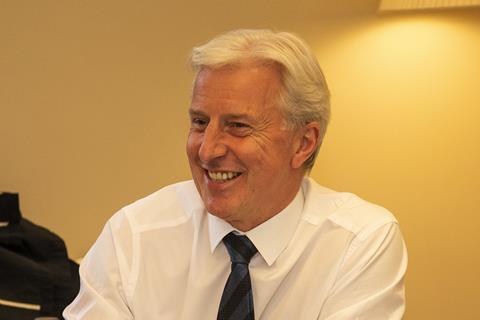
‘I want to modernise the organisation as well. I was brought in to implement a change agenda, and we’re two years into a five-year plan. We’re investing in the team, we’re getting great reaction from the teams because I think people have been waiting for change within the organisation.’
Paul Tennant, chief executive of the Law Society
Technology solutions for those present tend to centre around public-facing services, from information provided on websites, to tools that allow clients to enter their own data and information on their matter. But apps and online tools can connect clunkily to important legal services.
Porter sees this in family law and the damage to clients’ interests is very real. ‘The number of clients that I’ve dealt with recently, who have gone online to get their divorce finalised – everything, including the decree absolute.’ What is not clear is ‘rights’ in separation, including a claim to a property. ‘At which point… the house might have gone in the wind,’ she says. In another case, she informed a friend, ‘you have to see a solicitor to get a clean break consent order’.
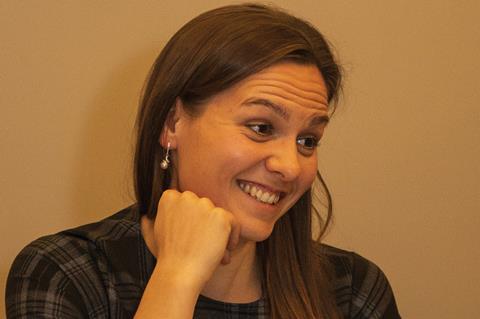
Law Society chief executive Paul Tennant asks the group if firms would co-operate to reach a view on the utility of the technology on offer, and some firms note that this is something they have started to do. He notes another change in the profession: ‘I was talking to a firm elsewhere in the country, and they were talking to tech students to bring them across to train as solicitors… that’s where they see the world shifting – they have a completely different mindset to apply to their profession going forward.’
The commercial, high street, family and legal aid lawyers present all operate within the region’s justice infrastructure, and deal with, or are very aware of, the south-west’s needs on access to justice. How are both faring?
The rise in litigants in person has been a huge feature in court cases, as it has elsewhere, Porter points out. This affects the view clients take of the justice system. She describes judges who are, ‘very cautious to show the litigant in person that the process is fair and not stacked against them’, with the knock-on effect that the ‘performance’ of the court can seem to centre on the unrepresented party. ‘It’s geared to make the litigant in person feel comfortable, which then, in turn, makes your client start to feel uncomfortable.’
Others describe local courts that some days seem empty except for family, children and care cases. Yet, a well-functioning court system that clients are willing to engage with can aid the settlement of civil disputes, not least by setting a timetable.
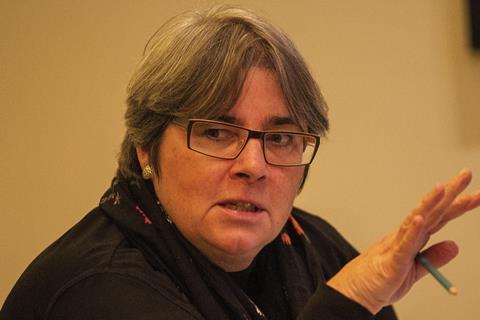
Bridget Garrood, former partner and now a consultant at Cartridges Law, is able to reflect on the firm’s response to legal aid being cut and taken out of scope for many cases. The firm is still committed to, and dependent on, legal aid work, but has ‘diversified into the business law market’ to ‘lessen the reliance on legal aid’.
This has not weakened the commitment the firm has to social welfare law, she adds, and it is one of a few firms with a serious focus on such areas. The firm must now market privately funded areas while giving a good service to ‘people who are being evicted from their homes in some very chaotic circumstances’.
But with the regional justice infrastructure affected by government cuts, she notes ‘a big push for private financial dispute resolution hearings’, a ‘without prejudice’ hearing that can get a resolution by providing legal clarity at an early point. Early neutral evaluation, Porter stresses, is being promoted by the president of the family division, Sir Andrew McFarlane.
Those present are, in summary, cautiously optimistic about Exeter’s ability to continue thriving as a legal market.
As Lyons puts it: ‘I feel that the signs are very good for the future. I think there has been a little bit of an unsettling six months or so as we deal with “the B-word”… we’ll have to wait for the election and see where we are perhaps at the end of January and beyond.’























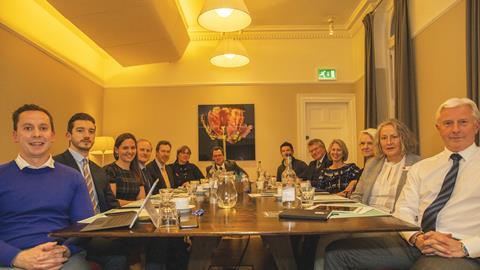













No comments yet